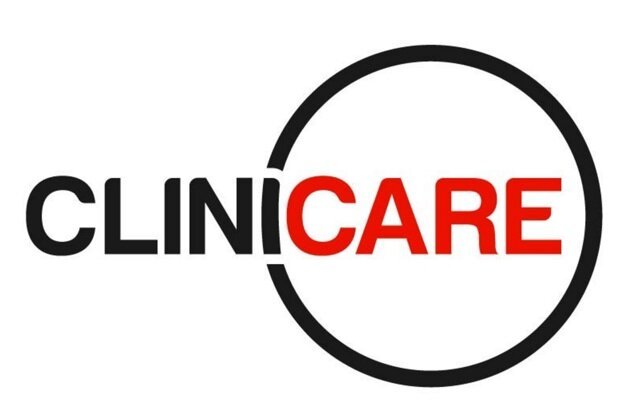Why Is Immunisation Important For Kids?
Immunisation is a simple, effective way of protecting children from serious diseases. Not only do vaccinations protect individuals, but they also protect the broader community by minimising the spread of disease.
How do vaccines work?
Vaccines trigger the immune system to fight against certain diseases. Vaccinations contain a small amount of disease that a nurse injects into the body. The body's immune system defends itself from the disease, building its immunity. Then, if a vaccinated person contracts this disease, their immune system responds more effectively, preventing the disease from developing or significantly reducing its severity.
What childhood diseases does immunisation cover?
Immunisation can protect against many serious childhood diseases, including:
· Chickenpox (varicella)
· Diphtheria
· German measles (rubella)
· Hepatitis
· Measles
· Meningococcal c
· Mumps
· Pneumococcal disease
· Polio
· Rotavirus
· Tetanus
· Whooping cough (pertussis).
These diseases can cause hospitalisation and significant ongoing health conditions (including cancer, brain damage, and deafness), and they are sometimes fatal. Here in Australia, we are lucky that our high immunisation rates in the community have significantly reduced many of these diseases. However, they still exist, especially overseas, and the risks of side effects or complications from these diseases are far greater than the minimal risks of associated side effects from vaccination.
Our five top reasons for immunising your children
There is no doubt that being a parent is challenging. We understand your goal is to do the best for your children, so you use car seats, baby gates, and other tools and tips to protect them. Did you know that one of the best ways to protect your children is to ensure they have all their vaccinations?
Here are Clinicare's top five reasons for immunising your children:
1. They can save your child's life
Advances in medical science ensure your child is now protected against more diseases than ever before. Medical progress has eliminated some once deadly diseases, and others are close to extinction, primarily due to safe and effective vaccines.
2. They are safe and effective
The medical community only introduces vaccines once they've undergone long and careful testing by scientists, doctors, and other healthcare professionals. Some vaccines might cause some minor discomfort and pain, redness, or tenderness at the injection site. However, this discomfort is minimal compared to the pain and trauma of the diseases the vaccines prevent. Serious side effects following vaccination are infrequent. The prevention benefits of vaccines far outweigh the rare possible side effects for almost all children.
3. They protect others you care about
The Australian Journal of General Practice notes, "there were 286 cases of measles notified in Australia in 2019... almost three times as many as in 2018." This number shows that children in Australia can still contract vaccine-preventable diseases. In fact, there have been resurgences in recorded cases of measles and whooping cough (pertussis) over the past few years. According to Health Direct, whooping cough can "cause serious health problems, more so in young babies and children." The pertussis vaccine is included in the childhood immunisation schedule and reduces the rate of illness and hospitalisation from the disease in Australia. Typically, outbreaks occur every 3–4 years and are most common in people not vaccinated. Some tiny babies cannot be vaccinated; others might have severe allergies or weakened immune systems. Vaccinating your child helps keep these vulnerable babies safe. Vaccination also protects other vulnerable people, such as the elderly and those at risk.
4. They save your family time and money
If your child's vaccination records are incomplete, they may be denied attendance at schools or childcare facilities. Finding alternative arrangements for unvaccinated children can take time and money. And, as some vaccine-preventable diseases can cause prolonged disabilities, they can result in lost income due to time off work and ongoing medical costs. The National Immunisation Program Schedule is free for all Australian children. Ask your local child health care professional to learn more about the NIP Schedule program.
5. They protect future generations
History shows that vaccines have not only reduced but, in some cases, eradicated many diseases that killed or severely harmed people in the past. The Smallpox vaccination eradicated the disease globally. By vaccinating children against preventable diseases, you significantly reduce the chances of future generations contracting these diseases. If parents and caregivers continue to vaccinate, some diseases of today will no longer exist to harm children in the future.
Your child's vaccination record
It's essential to keep a record of your child's vaccinations. Remember to bring your child's Personal Health Record to your medical clinic each time they have a vaccination, so your local GP can update and record the details.
When enrolling your child in childcare, preschool, or school, they'll likely ask for your child's Proof of Vaccination. Without it, your child may not be allowed to attend. If you lose or misplace your child's Personal Health Record, contact the Australian Childhood Immunisation Register on 1800 653 809 for a copy of your child's immunisation history (up to 7 years old).
Clinicare – your children's health specialists
Our experienced General Practitioners in Melbourne provide Children's Health support from early childhood to teenage years. Our credentialled Nurses are Immunisers at our children's health clinics and can provide immunisations during GP consultations.
Clinicare's mission is to provide our patients with comprehensive healthcare of the highest quality. We do not discriminate in our healthcare provision and treat all patients with dignity, compassion, and respect. If you have any questions or concerns about the immunisation schedule for your child, don't hesitate to contact our team. We are here to support and guide you.


